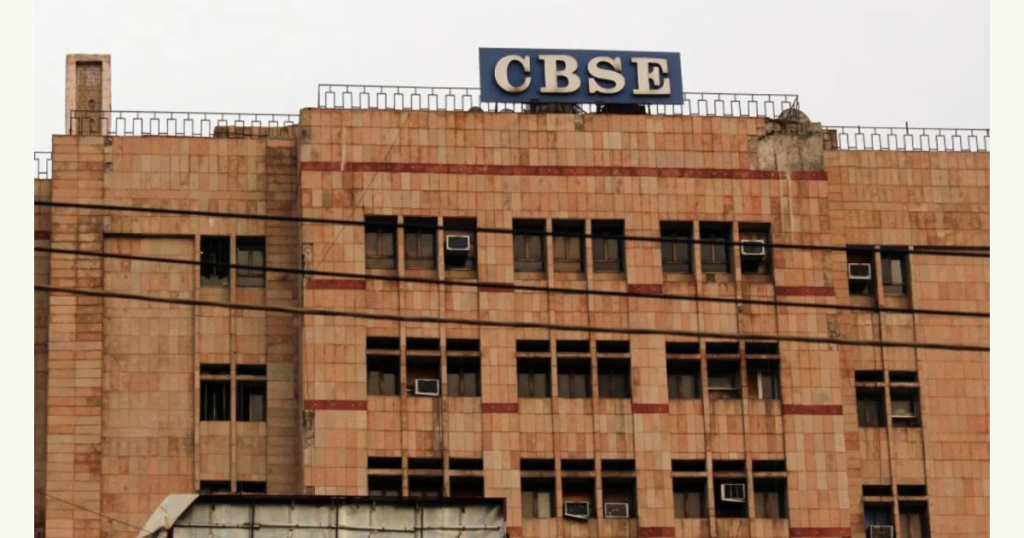CBSE conducted surprise inspections in 10 schools across six states, checking attendance, infrastructure, and compliance with affiliation norms.

On August 13, the Central Board of Secondary Education (CBSE) carried out a coordinated series of surprise inspections at ten schools across six states—Assam, Delhi, Karnataka, Madhya Pradesh, Maharashtra, and Odisha.
The move was aimed at ensuring these schools were strictly following CBSE’s bye-laws, upholding required academic and physical infrastructure standards, and not admitting students who do not attend classes regularly. The inspections also sought to verify that affiliated schools are maintaining a healthy academic environment and offering students the resources they are entitled to.
A Coordinated and Unannounced Operation
Each inspection team included one CBSE official and one principal from a CBSE-affiliated school. To preserve the element of surprise, all ten inspections were conducted simultaneously, making it impossible for schools to make last-minute arrangements to conceal shortcomings.
In an official statement, CBSE said, “The inspections were carried out in a synchronised manner to keep the surprise intact and obtain an accurate picture of the schools’ operations on the day of inspection.” This approach ensured that inspectors saw the schools in their everyday state—classrooms as they usually are, teachers going about their routines, and attendance registers reflecting reality.
What Was Checked
The inspections covered a wide range of parameters. Physical infrastructure checks included classrooms, laboratories, libraries, and sports facilities. Academic inspections focused on teaching quality, adherence to prescribed syllabi, and the overall learning environment.
A key part of the checks involved cross-verifying student enrolment records with actual attendance. CBSE is increasingly concerned about the practice of enrolling students who are absent for most of the year—often to inflate school numbers or accommodate special requests—which undermines academic integrity and the credibility of the institution.
Schools Inspected
The list of schools visited in the surprise drive includes:
- International School, Opposite Radiant Motors, Kali Mandir Path, Nalapara Road, Sarusajai, Guwahati, Assam
- Spring Dale International School, By Lane 3, Sonkuchi Path, Beharbari Charali, NH 37, Assam
- Rajindra Public School, Nihal Vihar, Nangloi, Delhi
- Shri Ram Global School, Whitefield, Sy No. 7 & 8, Samethanahalli, Naganayakanakote, Karnataka
- Sanskar Public School, Village & Post Naugaon, Madhya Pradesh
- Kiddy’s Corner Higher Secondary School, Shivpuri Road, Gwalior, Madhya Pradesh
- Aditya English Medium School, Sr. No. 70, Dhankude Nagar, Baner, Pune, Maharashtra
- Delhi World Public School, Plot No. 7A/7B, Sector-12, Opp. Poonam Tower, Nerul (West), Maharashtra
- Crimson Anisha Global School, S. No. 13/1/1, Kadnagar, Undri, Pune, Maharashtra
- Jupiter Public School, Gangapada, Khurda, Odisha
Possible Actions Ahead
While CBSE has not yet disclosed the specific outcomes, it has confirmed that action will be taken based on the Inspection Committees’ reports. This could range from issuing warnings and directives for corrective measures to imposing penalties or, in severe cases, withdrawing the school’s affiliation.
Historically, CBSE has used inspection findings to push for immediate changes—such as hiring qualified teachers, upgrading infrastructure, or improving safety measures—so that students get access to a complete and compliant learning environment.
Why the Surprise Checks Matter
These inspections underline CBSE’s commitment to maintaining high-quality education standards in its affiliated institutions. By catching schools off guard, the board ensures it sees the real picture, not a staged version prepared for inspection day.
For students, such enforcement means better learning conditions: classrooms that are well-equipped, teachers who are accountable, and a curriculum that is properly delivered. For parents, it provides reassurance that CBSE is actively monitoring schools and taking steps to safeguard children’s education.
In recent years, CBSE has stressed that education is not just about textbooks and exams but about the overall academic and personal growth of students. Surprise checks—targeting attendance manipulation, infrastructure gaps, and teaching quality—are part of a broader effort to ensure that schools deliver on that promise.
As the inspection reports come in, the education community will be watching closely to see what actions CBSE takes next, and whether these surprise visits will become a more regular part of the board’s oversight strategy.